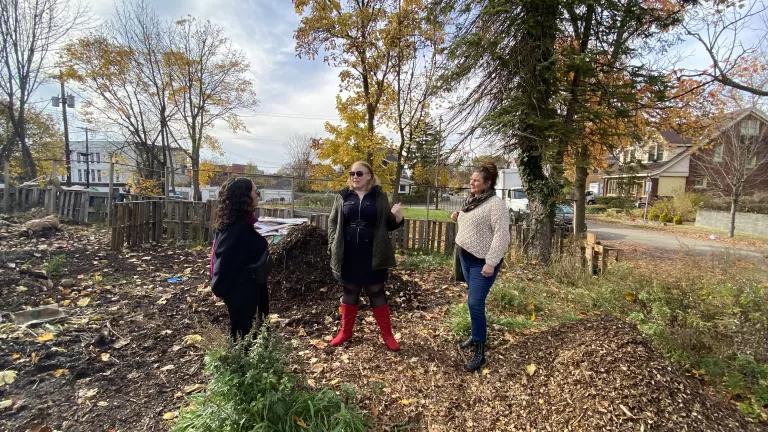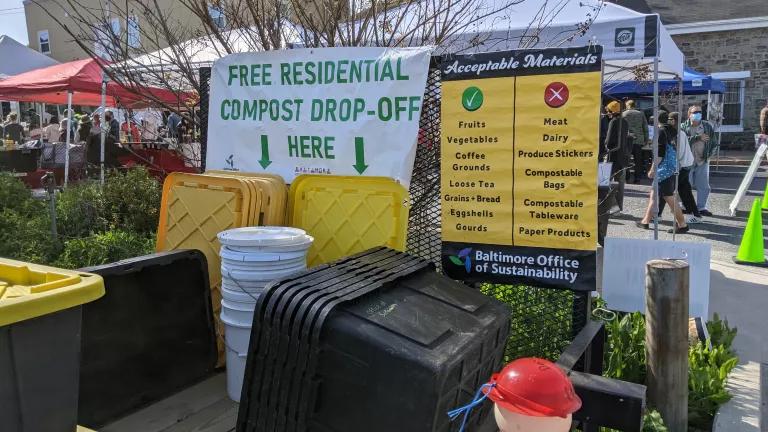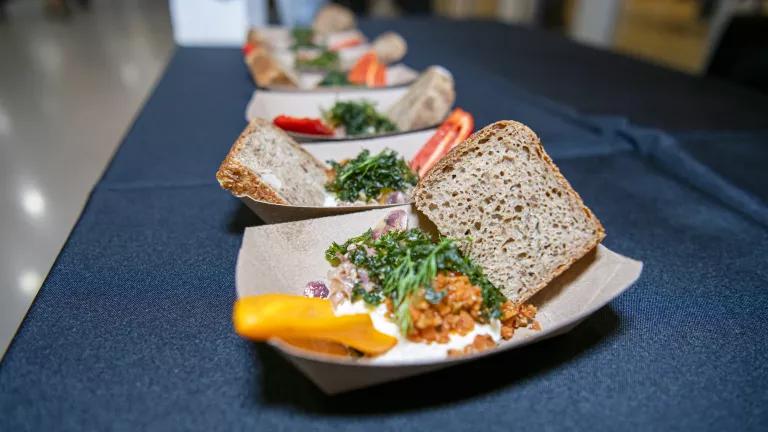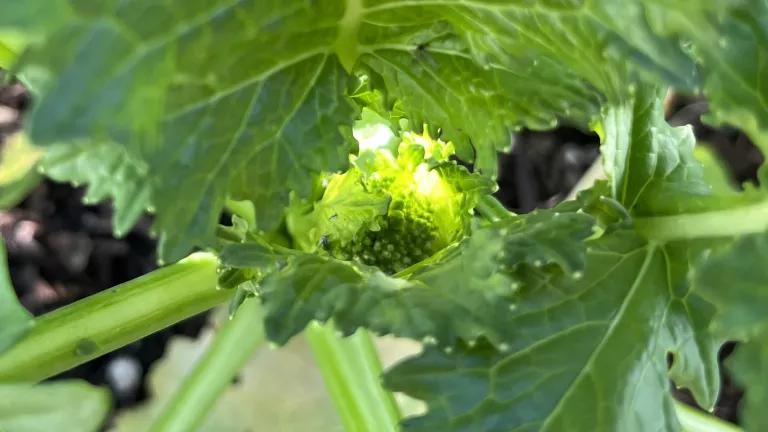Celebrating Mid-Atlantic and Southeast Food Matters Cohorts
This month, we mark the successful completion of our two-year partnerships with the Mid-Atlantic and Southeast cohorts. Our work with Great Lakes cities will continue in 2023.

NRDC, City of Pittsburgh and Sustainable Pittsburgh representatives visit a community composting site
Shelly Danko+Day
In 2020, starting with the Mid-Atlantic and Southeast regions and eventually expanding to the Great Lakes region, we launched the Food Matters Regional Initiative with the goal of furthering synchronicities and shared learnings related to food waste reduction at a regional level. The Food Matters Regional Initiative partnerships engaged five cities in each of the three cohorts, with twelve different states represented. This month, we mark the successful completion of our two-year partnerships with the Mid-Atlantic and Southeast cohorts. Our work with Great Lakes cities will continue in 2023.

NRDC Food Matters Mid-Atlantic and Southeast Cohorts
Last year, we published a blog about the achievements of the cohorts in their first year of engagement. In the second year, Mid-Atlantic and Southeast cities participating in the initiative engaged over 525 food rescue stakeholders (organizations, donors, end users, etc.), received over an estimated 6 million views of messaging related to wasted food prevention, hosted over 350 community events, collected or processed over 1600 tons of food scraps/organics, and conducted at least 25 food waste audits. Many city agencies and local stakeholders in each city were involved in goal setting and strategy development and implementation over the two-year timeline of the Initiative.
We congratulate all of our Mid-Atlantic and Southeast partners on their successes, and look forward to their continued participation in our city knowledge sharing network. Highlights from each cohort city’s year two activities include:
Mid-Atlantic Cohort:
- Baltimore, MD: Set up a food scrap drop-off pilot, which aims to raise awareness about food waste and reduce food in Baltimore’s residential waste stream. Food scraps are being collected throughout the city at five existing drop-off centers, then composted by local compost service Compost Crew.
- Jersey City, NJ: Developed their first food rescue mapping initiative to better understand the food rescue landscape and stakeholders across the city so that more food can be redistributed effectively. By reducing the amount of quality surplus food going to waste, the city can not only play a role in ensuring that that food is eaten by people, but can also reduce waste hauling costs to save the city money.
- Philadelphia, PA: Completed two focus groups series in partnership with local community-based organizations SMCDC and SEAMAAC. The focus groups convened residents of the Strawberry Mansion and South Philadelphia neighborhoods to talk about their experiences with household food waste and offer feedback about educational messages that the Office of Sustainability designed for their citywide food waste awareness campaign, “Eat Away at Food Waste.”
- Pittsburgh, PA: Received a USDA Composting and Food Waste Reduction Cooperative Agreement grant for their Urban Agricultural Solutions for Managing Organic Waste project, which is identifying a means of composting organic waste generated from internal city operations with the aim of scaling to a citywide residential organic waste recycling option for residents. The city is working on an ongoing education program for residents to learn about composting and doing waste audits at farmers markets to understand how much waste is getting diverted as part of the program.
- Washington, DC: Launched their Food Waste innovation grants, which provide businesses with free food waste assessments and $1,000 of Compost Credit towards food scrap collection. The grants will total $300,000 to finance food waste interventions at small businesses. To learn more, read the profiles that local organization RescueDish developed of grant recipients.
Southeast Cohort:
- Asheville, NC: Promoted Food Waste Reduction month through a home food waste challenge on social media and a publicly attended chef challenge event, “Taste It Don’t Waste It.” Asheville also incorporated bear-proofing into the development of their food scraps drop-off program.
- Atlanta, GA: Launched the “Zero Waste Westside” project, designed to build awareness about the environmental impact of food waste, mobilize food rescue and waste diversion services for neighborhoods and households on the Westside of Atlanta, and scale community composting operations.
- Memphis, TN: Partnered with Shelby County Health Department to create and distribute safe food donation brochures; also trained health inspectors to educate restaurants on donation opportunities and distribute this brochure to several thousand restaurants during their annual inspections.
- Nashville, TN: Developed a public website for sharing Kitchens-to-Kitchens chef peer training videos; published a website, ChangeAddsUp, featuring creative assets to educate families about why and how to reduce wasted food; and completed a mural about reducing wasted food, painted on the side of a Kroger’s in the Green Hills neighborhood.
- Orlando, FL: Ran a successful food waste prevention education campaign, including radio ads in English and Spanish, billboard and bus shelter posters, and many social media posts featuring creative assets such as a “bingo card” for food waste prevention actions.

Wasted food prevention messaging on Atlanta's MARTA
Although our Mid-Atlantic and Southeast cohorts have wrapped, we hope to continue to work with these cities on food waste initiatives – and we are excited to announce that we will be extending our city partnerships beyond the regional approach. In the regional phase of the Food Matters initiative, we focused on building city partnerships with cities from the same region working to adopt a suite of several food waste reduction strategies within a two-year period. Now, we are launching a new phase of Food Matters city partnerships, in which we will work with cities from across the country one-on-one on a single food waste reduction strategy, while simultaneously engaging our partner cities and others in our Food Matters Knowledge Sharing Network to facilitate robust peer-to-peer sharing. If you are a city interested in joining the Food Matters initiative, please join our informational webinar on December 13 at 9am PT/12pm ET. You can register for the webinar here. You can reach out to us at foodmatters@nrdc.org for more information.




